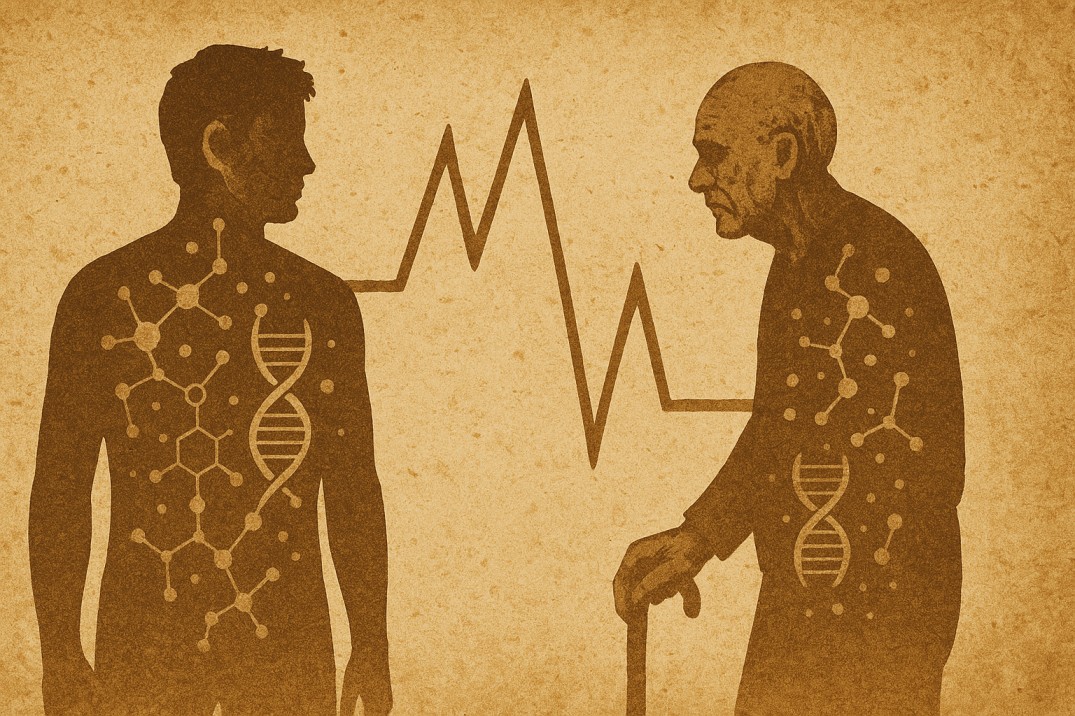Humans Age Faster at Two Sharp Peaks
Based on: Michael Snyder et al., Nature Aging, August 2024
Introduction
A groundbreaking study has revealed that human aging does not occur at a steady pace throughout life. Instead, it accelerates sharply during two specific stages — the mid-40s and early 60s. This discovery challenges the traditional view of gradual aging and opens new pathways for targeted healthcare interventions.
The Study at a Glance
Researchers led by Michael Snyder tracked 135,239 biological features from various parts of the body, including:
- RNA
- Proteins
- Lipids
- Microbiome taxa
By analyzing these molecular markers, the team identified major shifts in about 81% of these molecules during two critical life stages.
Peak 1: Mid-40s
In the mid-40s, the study observed widespread molecular changes associated with:
-
Lipid metabolism
-
Caffeine and alcohol metabolism
-
Cardiovascular health issues
-
Early signs of skin and muscle dysfunction
This stage coincides with perimenopause or menopause in women, but similar biological changes were found in men as well, suggesting broader underlying factors.
Peak 2: Early 60s
In the early 60s, another wave of accelerated aging occurs, marked by changes in:
-
Carbohydrate and caffeine metabolism
-
Cardiovascular disease risk
-
Immune system regulation
-
Skin, muscle, and kidney function
This second peak appears to reflect a systemic shift in multiple organ systems and immune functions as the body enters older age.
Beyond Menopause: A Broader Pattern
While hormonal transitions like menopause may explain some changes in women, they do not account for similar patterns in men.
As study co-author Xiaotao Shen (Nanyang Technological University, Singapore) noted:
“This suggests that while menopause or perimenopause may contribute to the changes observed in women in their mid-40s, there are likely other, more significant factors influencing these changes in both men and women.”
Study Limitations
The researchers cautioned that their sample size was relatively small, which may limit the generalizability of the findings. Larger and more diverse studies are needed to confirm these biological aging peaks across different populations.
Key Takeaways
-
Human aging accelerates at two distinct life stages: mid-40s and early 60s.
-
These peaks involve broad metabolic and physiological changes.
-
Similar patterns in both men and women suggest factors beyond menopause.
-
Further research is needed to validate and expand on these findings.
Conclusion
This study provides important insights into when and how human aging speeds up, potentially allowing for more targeted healthcare strategies during these vulnerable life stages. Understanding these peaks could help in developing preventive measures to maintain health and vitality well into later life.






